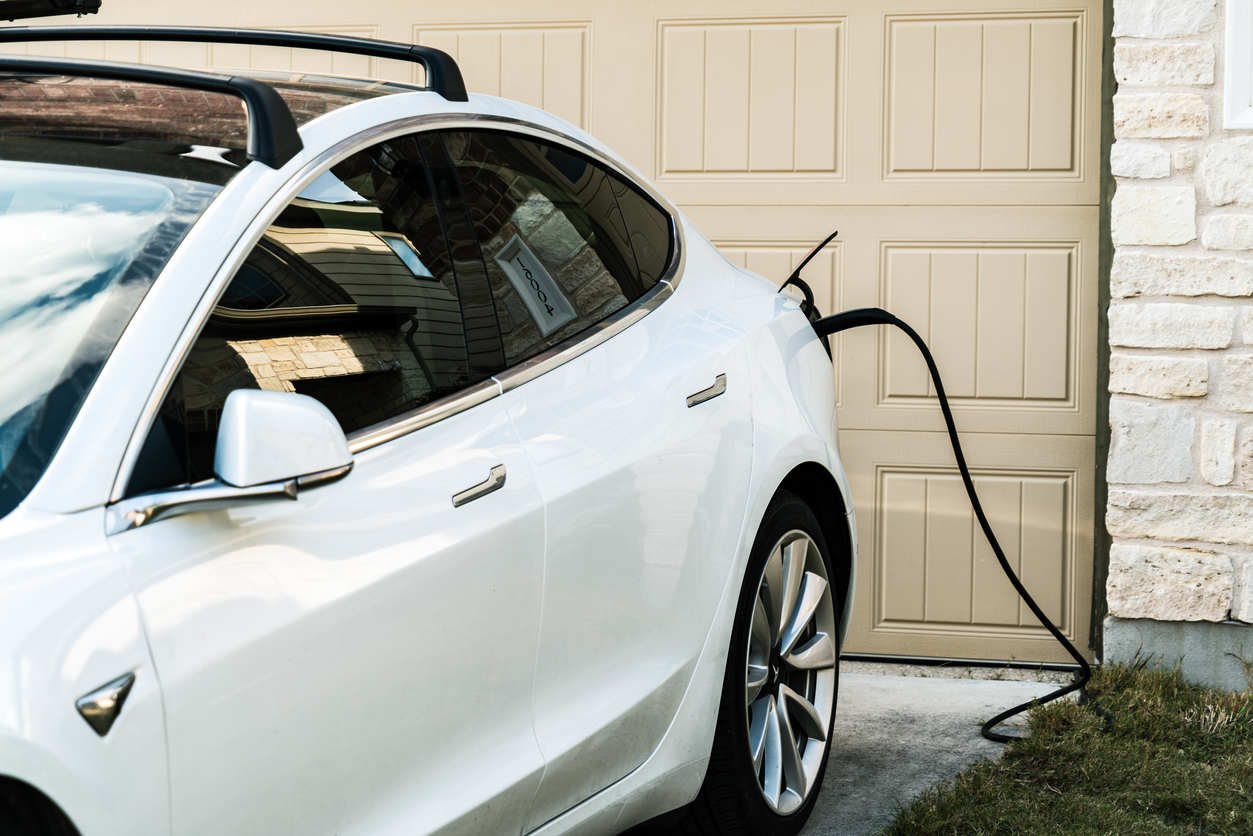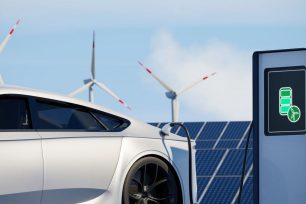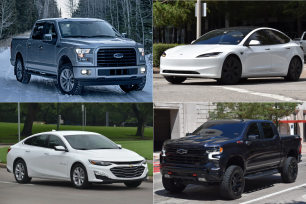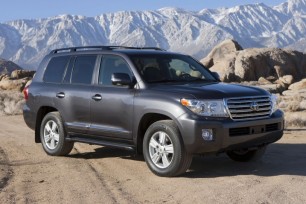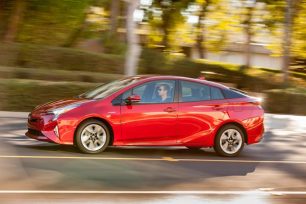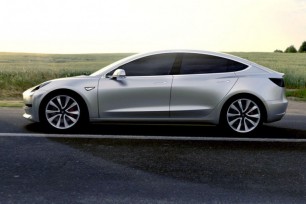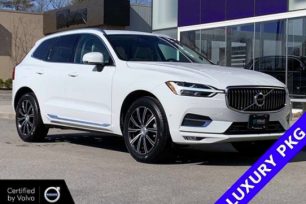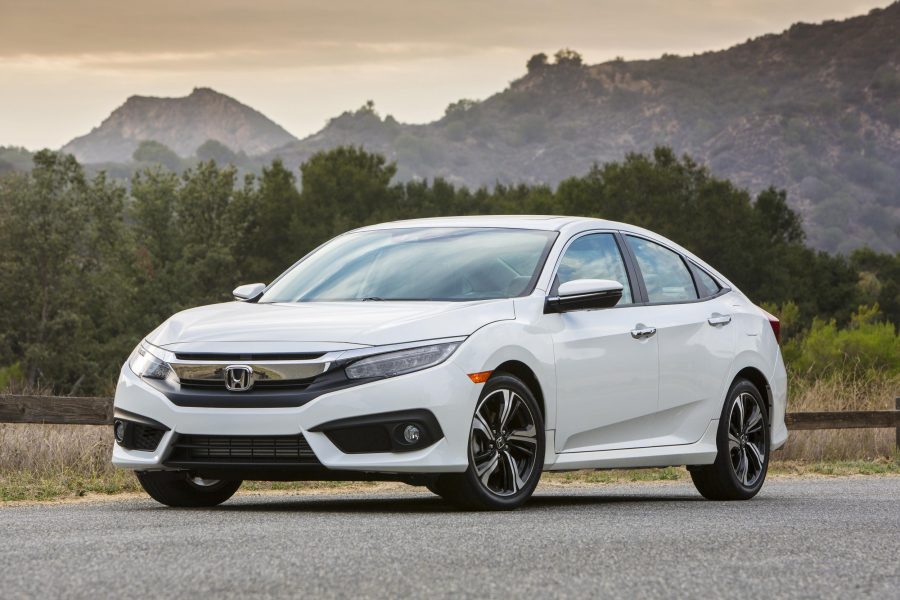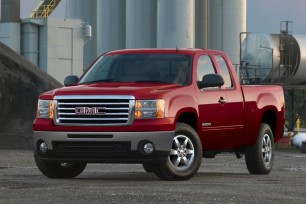Electric cars have surged in popularity due to high gas prices and the emergence of new all-electric vehicles across all major vehicle types. Because electric cars are a relatively new technology, prospective buyers may be curious about how long they can expect these cars to last.
From battery life to expected length of ownership for popular electric cars, we answer the question of how long you can expect EVs to remain on the road.
How Long Do Electric Car Batteries Last?
Because replacing a car’s battery pack can cost upwards of $20,000, it’s likely the end of a car’s battery life is when drivers will choose to replace their vehicle. When it comes to the lifespan of an EV battery, many factors should be taken into account. While electric car battery life can vary, EV manufacturers are required to provide a warranty on their batteries for at least 8 years or 10,000 miles. Just like traditional gasoline vehicles, some manufacturers offer longer warranties. For example, Kia offers a battery pack warranty for 10 years or 100,000 miles, and Hyundai provides warranty coverage on EV batteries for the entire lifetime of the vehicle. It’s also worth noting that battery warranties vary not only by time but also the nature of the coverage. Some automakers will only replace the battery if it dies completely, while other brands like BMW, Tesla, and Volkswagen will cover a battery after battery capacity falls below a certain percentage.Once met with skepticism, battery technology has continued to evolve as manufacturers create larger batteries with improved range. The advanced technology of these larger new batteries also reduces battery degradation. Even as they degrade, they will still maintain a large percentage of their range. For example, a Tesla Model S only loses an estimated five percent of battery capacity over its first 50,000 miles.
When properly maintained, modern electric car batteries likely won’t require a battery replacement. And as engineering evolves, batteries will be designed to last the entire lifespan of the vehicle. Therefore, the cost of replacing a battery should not be a deterrent for potential EV drivers.
How to Extend Electric Vehicle Battery Life
Although modern EV batteries are built to stand the test of time, that only remains true if they are properly maintained. Electric car battery life is also affected by the number of times the battery pack is charged and depleted. The more charging cycles, the faster the battery will degrade. Follow these important tips to optimize EV battery lifespan.1. Avoid parking in extreme temperatures
Lithium-ion batteries have thermal management systems that will heat or cool themselves, which uses energy and drains EV battery packs. Think of the effect extreme temperatures have on your cell phone battery. Avoid extreme temperatures by parking in the shade on hot days and inside a parking structure or garage in extreme cold temperatures to assist battery longevity.
2. Don’t Overcharge or Undercharge Your Vehicle
Modern electric cars have management systems that avoid charging and discharging at the maximum and minimum charging levels. That means never reaching a full charge or falling to zero percent. This helps avoid charging your vehicle above 80 percent or below 20 percent, which will help prolong battery life.
3. Use Fast Charging Stations Sparingly
DC fast charging stations, also known as Level 3 EV charging stations, can bring your battery level from 1 to 80 percent in as little as 30 minutes. The added convenience of these chargers puts a strain on your EV battery, so drivers should only use these rapid charging stations when completely necessary, like road trips, and do most charging with at-home charging units or level 2 public chargers.
Can Electric Car Batteries be Recycled?
When an automotive EV battery’s performance falls below 70 percent, it can have a second life when it is no longer useful to power a vehicle. There are many applications to repurpose EV batteries for renewable energy sources, including home energy storage systems and manufacturing plants. In Japan, Toyota has repurposed its EV batteries to store excess power generated from solar panels to be discharged when necessary.Longest-Lasting Electric Cars
Electric cars require less maintenance than their internal combustion engine counterparts, and their vehicle management systems can immediately notify owners if anything needs service. This greatly simplifies the process of keeping an electric car running, which suggests they should save owners time and money over the course of the car’s life. Because EVs are new to the market, they haven’t yet displayed their proven longevity like gas cars. However, the two electric vehicles that have been around for at least 10 of the past 20 years, both show potential for long-term durability.| Greatest Potential Lifespan EVs– iSeeCars Study | ||
| Rank | Vehicle | Potential Lifespan |
| 1 | Tesla Model S | 133,998 |
| 2 | Nissan LEAF | 98,081 |
Bottom Line
If you’re interested in a new car with zero emissions, there are a number of electric cars to choose from. Whether it’s a sports car, a truck, or SUV, you can likely find an electric vehicle to suit your needs. While battery life used to be a concern for prospective EV owners, modern technology has allowed EVs to last as long if not longer than traditional gasoline-powered vehicles. However, a vehicle’s lifespan is dependent on proper maintenance and care, so be sure to follow the manufacturer's instructions when it comes to charging and routine maintenance.
More from iSeeCars:
- How Long Does it Take to Charge an Electric Car?
- Electric Cars with the Longest Range
- Best Electric Cars

